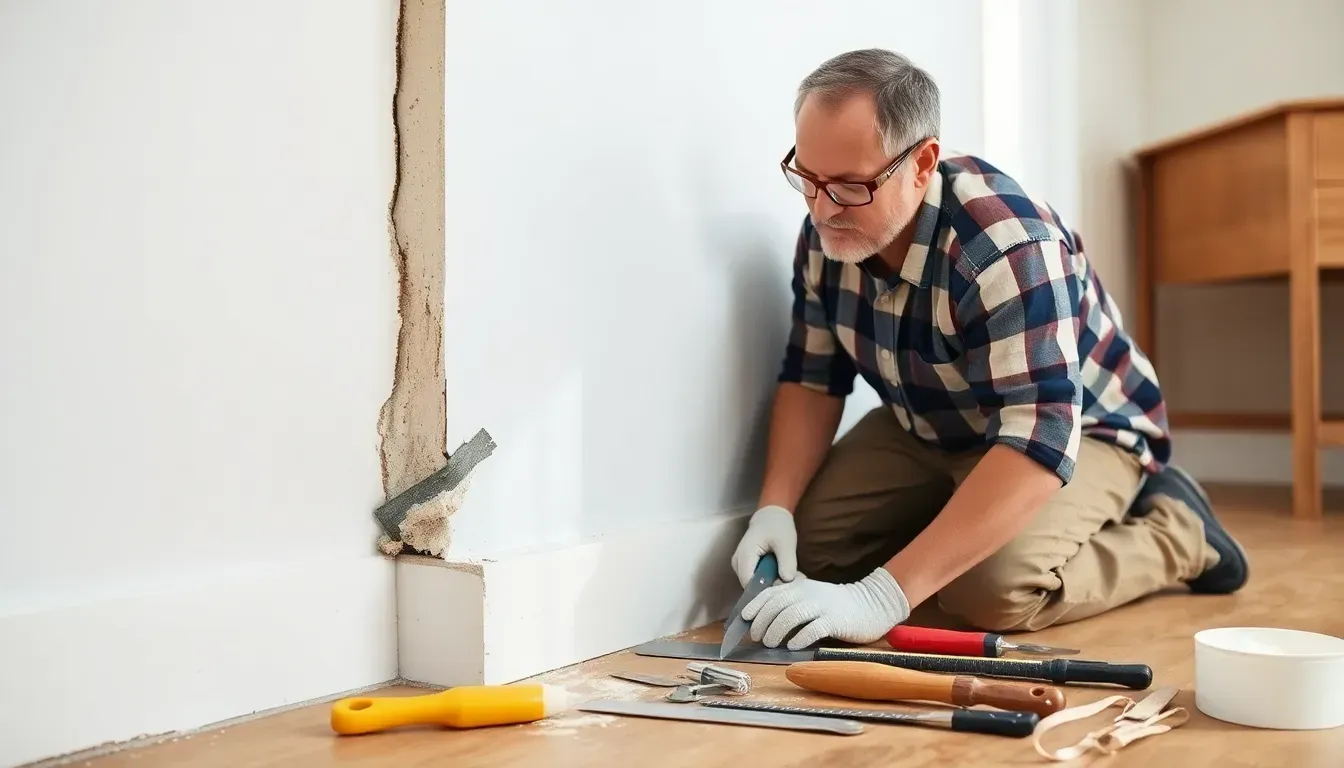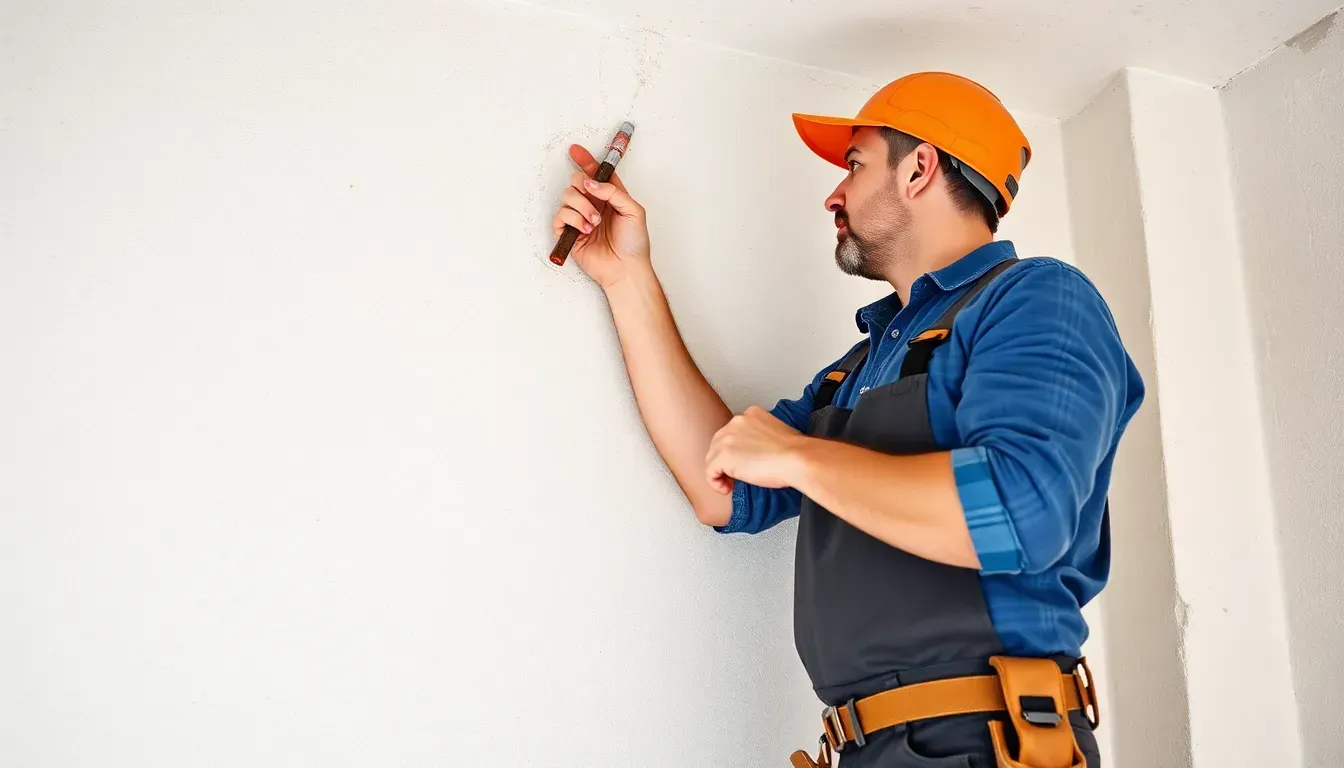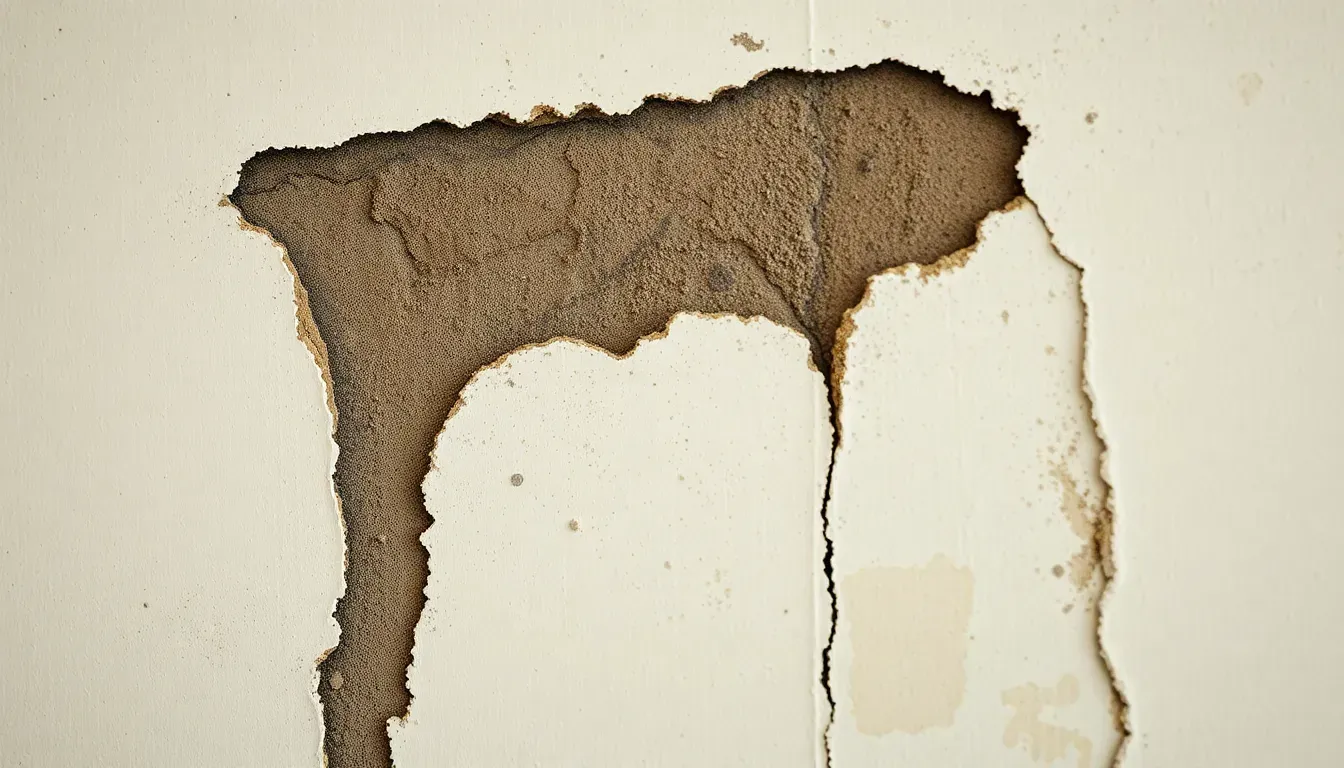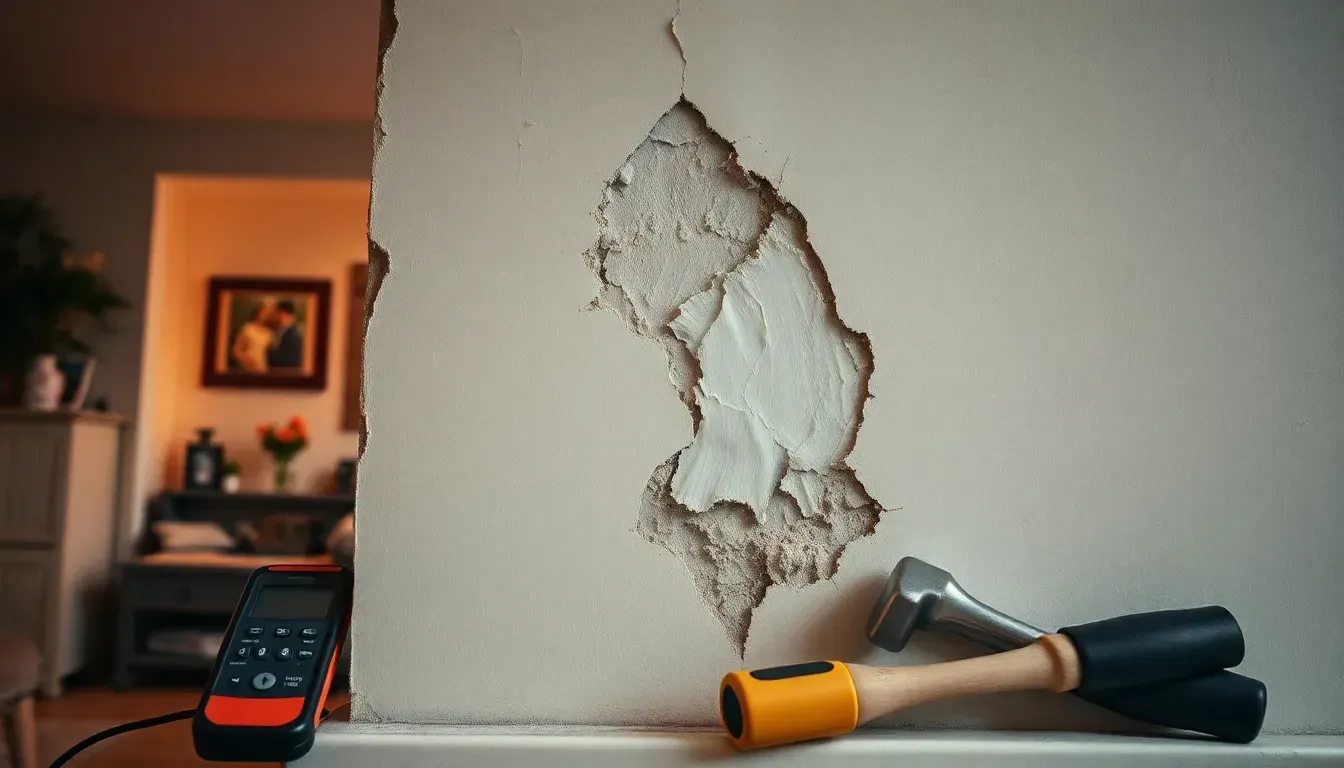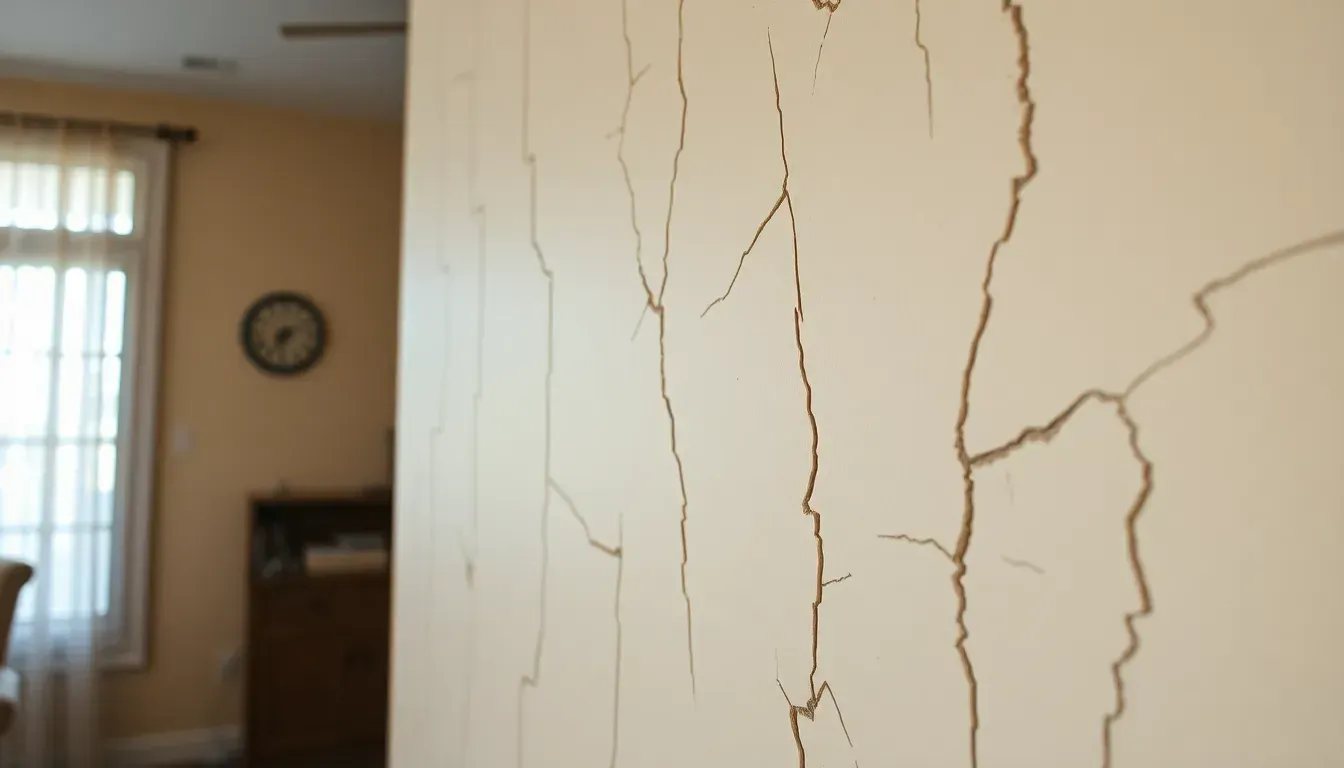Home Repair Heroes: Finding the Right Contractor for Your Needs
Let's explore contractor for home repairs and how to make informed choices:
- Research contractor licenses: Check state and local regulations to ensure proper licensing.
- Vet your contractor: Get multiple written estimates, contact references, and review past work.
- Watch for red flags: Be cautious of contractors who only accept cash, solicit door-to-door, or won't share business info.
Quick decisions often lead to regrets, so focusing on these essentials can steer you clear from potential pitfalls.
When your home needs repairs or a fresh upgrade, finding a reliable contractor becomes essential. Whether it's fixing plumbing issues or remodeling the kitchen, hiring the right professional is key to achieving success without stress. A good contractor ensures that work meets industry standards and is completed on time without hidden costs. Here, we aim to guide you through the path of selecting trustworthy contractors and understanding the steps involved in home renovation projects.
Homeowners often worry about scams or poor-quality work. Recognizing shady practices, like requests for upfront cash or vague contracts, can protect your time and money. Additionally, familiarizing yourself with local licensing requirements will narrow choices to only qualified professionals.
Know these steps, and ensure that your home repair journey is as smooth as possible.
Understanding Contractor Costs
When planning a home repair or remodeling project, understanding the costs involved is crucial. Let's break down what you need to know about general contractor charges, project costs, and the expenses related to labor and materials.
General Contractor Charges
General contractors are like the project managers of home repairs. They coordinate all the different tasks and trades involved. The average cost for hiring a general contractor can vary significantly, depending on the project's scope and complexity.
Project Costs
Project costs can be divided into two main categories: labor and materials.
- Labor Costs: This is what you pay for the time and expertise of the professionals working on your project. Labor costs can vary based on the contractor's experience and the complexity of the work. For example, specialized trades like electricians or plumbers might charge more due to their expertise.
- Materials Costs: These are the expenses for the supplies needed for your project, such as wood, tiles, or paint. The cost of materials can fluctuate based on quality, availability, and market conditions.
Factors Affecting Costs
Several factors can influence the overall cost of your home repair project:
- Project Size: Larger projects typically require more materials and labor, increasing costs.
- Project Complexity: More complex jobs, like structural changes or specialized installations, can raise expenses due to the need for skilled labor and more time.
- Location: Costs can also vary depending on where you live. Prices might be higher in urban areas compared to rural ones due to differences in labor rates and material availability.
- Contractor's Reputation: Experienced and reputable contractors might charge more for their services, but they often deliver higher quality work and reliability.
Budgeting Tips
- Get Multiple Estimates: Always seek written estimates from several contractors to compare prices and services offered.
- Clarify Terms: Ensure all costs are clearly outlined in the contract, including potential additional charges.
- Negotiate Payment Terms: Consider setting payment schedules tied to project milestones rather than paying everything upfront.
Understanding these aspects of contractor costs will help you plan your budget effectively and avoid unexpected expenses. Being informed allows you to choose a contractor who not only fits your needs but also respects your financial boundaries.
Next, we'll explore how to find a reliable contractor for home repairs.
How to Find a Reliable Contractor for Home Repairs
Finding the right contractor for home repairs can feel like a daunting task, but with a detailed plan and some research, you can make it a smooth process. Here's how you can ensure you hire the best professional for your needs.
Create a Detailed Plan
Before reaching out to contractors, have a clear idea of what your project entails. This means writing down all the details of your home repair or remodeling project. Think about the specific tasks you need done, your budget, and your timeline. A detailed plan helps you communicate your needs clearly to potential contractors and ensures that you're both on the same page from the start.
Ask for References
One of the most reliable ways to find a trustworthy contractor is through referrals. Start by asking friends, family, or neighbors if they have any recommendations. Personal experiences can provide valuable insights into a contractor's reliability and quality of work.
Once you have a few names, don't hesitate to ask the contractors for references from previous clients. Contact these references and, if possible, visit completed projects to see the quality of work firsthand. This step can give you peace of mind and help you avoid contractors who might not meet your standards.
Connect with Local Trade Organizations
Local trade organizations, such as the Home Builders Association of Georgia, can be excellent resources for finding reputable contractors. These organizations often have a list of members who are licensed and in good standing. They can also provide information about a contractor's specialties and areas of expertise.
Using these resources can help you find a contractor who is not only skilled but also familiar with local building codes and regulations, which is crucial for ensuring your project goes smoothly.
Use Online Platforms
Online platforms like HomeAdvisor can also be useful in your search. These platforms allow you to read reviews from other homeowners, compare quotes, and see ratings for different contractors. They often have a screening process to ensure that the contractors listed are qualified and reliable.
Key Takeaways
- Have a detailed plan: Clearly outline your project needs to communicate effectively with potential contractors.
- Check references: Personal referrals and past client references are invaluable for gauging reliability.
- Use local resources: Local trade organizations can connect you with licensed and reputable contractors.
By following these steps, you can find a reliable contractor who will help turn your home repair vision into reality. Next, we'll look at red flags to watch out for when hiring a contractor.
Red Flags to Watch Out For
Hiring a contractor for home repairs can be tricky. There are warning signs that can help you avoid a bad experience. Let's look at some of these red flags.
Unsolicited Contractors
Be cautious of contractors who show up at your door uninvited. These door-to-door contractors might offer tempting deals, but they're often not trustworthy. Ask yourself: why are they not busy with other projects? A reputable contractor usually has a full schedule and doesn't need to knock on doors to find work.
Cash Payments Only
If a contractor insists on cash payments, it's time to be wary. Legitimate contractors should accept multiple forms of payment. Cash-only deals can be a way to avoid taxes or hide poor business practices. They also make it harder for you to track payments and protect yourself if something goes wrong.
Building Permits
A good contractor knows the importance of proper permits. If a contractor asks you to get the building permits, consider it a red flag. This could mean they are not licensed or are trying to cut corners. Permits ensure that your project meets local building codes and safety standards. Always ensure your contractor handles this step.
Other Warning Signs
Here are a few more red flags to keep in mind:
- The contractor pressures you to make an immediate decision.
- They offer an exceptionally long guarantee that seems too good to be true.
- They don't have a business number listed in the local directory.
Spotting these signs early can save you from a lot of headaches. Keep your eyes open, and remember that the right contractor will be transparent and professional.
Next, we'll dive into some tips for choosing the right contractor.
Tips for Choosing the Right Contractor
Selecting the right contractor for home repairs is crucial to ensure your project runs smoothly. Here are some practical tips to guide you through this process:
Written Estimates
Always get written estimates from several contractors. This helps you compare prices and understand what each contractor is offering. Make sure the estimates detail the cost of labor, materials, and any other expenses. Having everything in writing protects you from unexpected charges and gives you a clear picture of the project's financial scope.
Contract Terms
A detailed contract is your best friend. It should include the scope of work, timelines, payment schedule, and any guarantees or warranties. Agree on start and completion dates and have them in writing. This contract becomes a roadmap for the project and sets clear expectations for both parties.
Payment Terms
Consider setting payment terms that align with the completion of project stages. This means you pay as each part of the project is completed, rather than upfront. This approach ensures the contractor stays motivated to finish the work on time and to your satisfaction. Avoid paying for the entire job in advance, as it reduces your leverage if issues arise.
By following these tips, you'll be better equipped to choose a contractor who meets your needs and ensures your home repair project is a success.
Next, we'll address some frequently asked questions about contractors for home repairs.
Frequently Asked Questions about Contractors for Home Repairs
What not to tell your contractor?
When working with a contractor for home repairs, it’s important to keep some information to yourself. Avoid discussing your budget in detail. Instead, focus on what you need done and let them provide an estimate. Sharing your budget can lead to quotes that conveniently match what you’re willing to spend, rather than reflecting actual costs.
What does a general contractor typically charge?
A general contractor usually charges based on the scope of the project. This includes labor, materials, and any specialized trades required. On average, contractors might charge a markup of 10-20% on project costs. Hourly rates can vary, but understanding the breakdown of costs helps you assess if the quote is fair.
For home improvement projects, a contractor might specialize in specific trades like plumbing or electrical work, which can affect pricing. Always ask for a detailed cost breakdown to see where your money is going.
How to handle contractor disputes?
Disputes can arise even with the best contractors. Start by reviewing your contract and warranty. Most warranties cover defects in materials and workmanship for a specified period. Follow the procedures outlined in your warranty for resolving issues.
If the dispute escalates, you might have arbitration rights. This means a neutral third party can help mediate the situation. Keep detailed records of all communications and attempts to resolve the issue. This documentation can be crucial if you need to pursue further action.
Understanding these aspects can help you steer the complexities of hiring and working with a contractor, ensuring your home repair project is completed smoothly and satisfactorily.
Conclusion
Choosing the right contractor for home repairs is crucial for ensuring customer satisfaction and maintaining property safety. At Accurate Home and Commercial Services, we understand the importance of delivering high-quality results that meet your expectations. Our team, based in Conroe, TX, offers comprehensive home inspection and pest control services across the Greater Houston area, bringing extensive experience and attention to detail to every project.
Our commitment to thorough inspections and customer service sets us apart. We focus on identifying potential issues before they become costly problems, ensuring your property remains safe and efficient. With locations in Porter, New Caney, Humble, The Woodlands, Spring, and other areas, we are well-positioned to serve a wide range of clients.
For more information on how Accurate Home and Commercial Services can assist you, visit our home inspections page. Our expert team is ready to help you find the right solutions for your home repair needs, ensuring peace of mind and long-term satisfaction.
